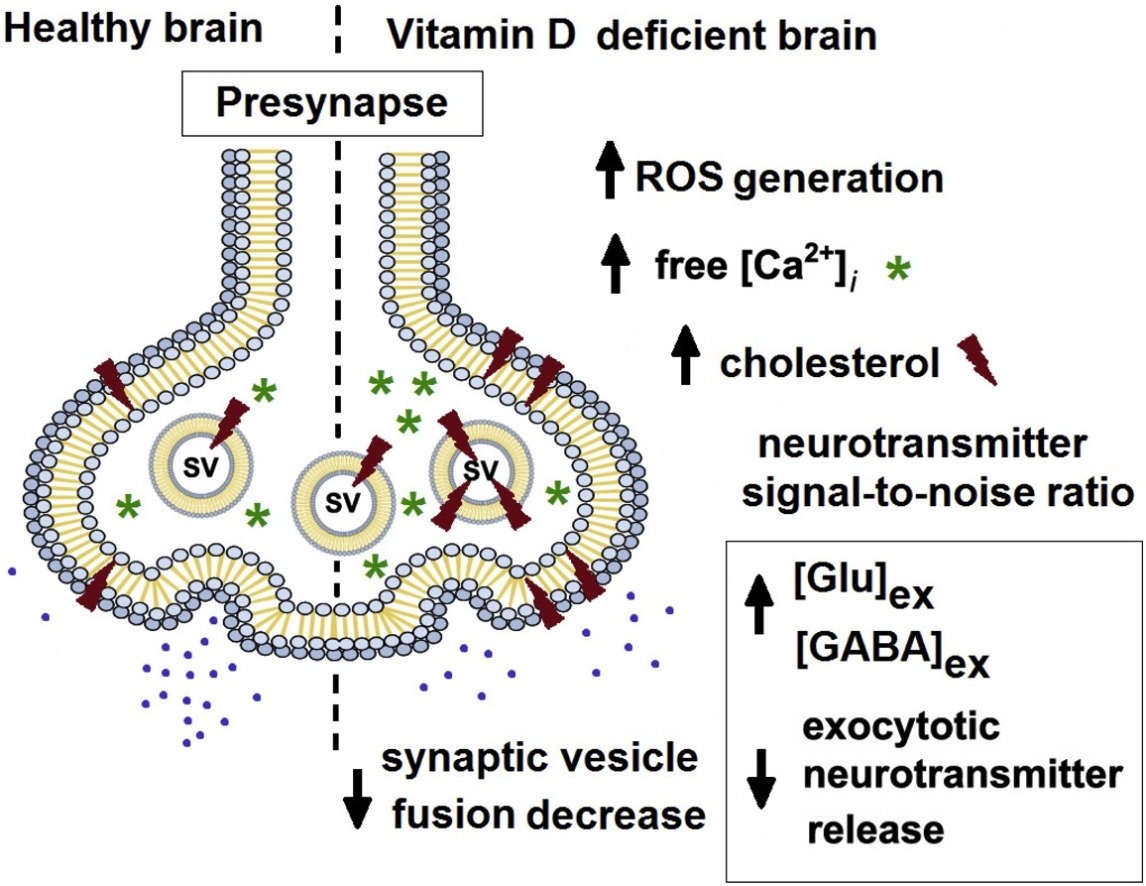Vitamin D deficiency induces the excitation/inhibition brain imbalance and the proinflammatory shift
Ludmila A.Kasatkina The International Journal of Biochemistry & Cell Biology 119, February 2020,
Highlights
• Vitamin D3 deficiency predisposes to development of several neurological disorders.
• Vitamin D3 deficiency causes the proinflammatory shift and presynaptic [Ca2+]i rise.
• Brain glutamate/GABAergic dysfunctions are early events in pathology progression.
• High cholesterol in presynaptic membrane reduced SNARE-mediated membrane fusion.
• Vitamin D3 supports the balance in mGluR7 signalling and neurotransmitter turnover.
Vitamin D3 is among the major neurosteroids whose role in developing and adult brain is intensively studied now. Its active form 1,25(OH)2D3 regulates the expression and functioning of a range of brain-specific proteins, which orchestrate the neurotransmitter turnover, neurogenesis and neuroplasticity. Despite numerous studies of the vitamin D role in normal and pathological brain function, there is little evidence on the mechanisms of alterations in excitatory and inhibitory neurotransmission under vitamin D deficiency (VDD).
Using the animal model we characterized the dysfunction of excitatory and inhibitory neurotransmission under alimentary VDD. The shift between unstimulated and evoked GABA release under VDD was largely reversed after treatment of VDD, whereas the impairments in glutamatergic system were only partially recovered after 1-month vitamin D3 supplementation. The increase of the external glutamate level and unstimulated GABA release in brain nerve terminals was associated with intensified ROS production and higher [Ca2+]i in presynapse. The negative allosteric modulation of presynaptic mGlu7 receptors significantly enhanced exocytotic GABA release, which was decreased under VDD, thereby suggesting the neuroprotective effect of such modulation of inhibitory neurotransmission.
Synaptic plasma membranes and cytosolic proteins contribute to the decreased stimulated release of neurotransmitter, by being the crucial components, whose functional state is impaired under VDD. The critical changes with synaptic vesicles occurred at the docking step of the process, whereas malfunctioning of synaptic cytosolic proteins impacted the fusion event foremost. The decreased amplitude of exocytosis was inherent for non-excitable cells as well, as evidenced by lower platelet degranulation.
Our data suggest the presynaptic dysfunction and proinflammatory shift as the early events in the pathogenesis of VDD-associated disorders and provide evidences for the neuroprotective role of vitamin D3.














